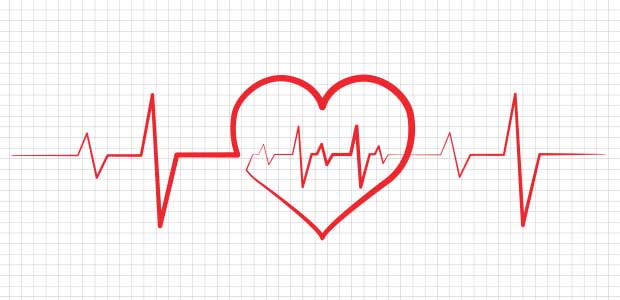
Managing Heart Health at Home During COVID-19
Staying healthy amid the many different nuances the pandemic has brought to fruition can be especially tricky for those who live with heart conditions. Fortunately, heart health can be managed successfully at home.
- By Ellie Batchiyska
- Jun 02, 2020
Staying healthy amid the many different nuances the Coronavirus pandemic has brought to fruition can be especially tricky for those who live with heart conditions. Fortunately, heart health can be managed successfully at home through:
- Active monitoring and management of your condition
- Stress management
- Frequent contact with your physician
- The right at-home equipment
- A comprehensive action plan
It's essential to keep in mind that even the best home health monitoring behaviors are not a substitute for regular checkups. Collaborating with your physician and testing in-home equipment to ensure readings are correct is highly recommended.
Monitoring Matters
Monitoring your overall health and other warning signs of a worsening heart condition is the best method to maintain heart health at home. An in-home monitoring system is a comprehensive way to track your blood pressure, heart rate, weight, fluid retention and communicate with your physician and call for medical help.
Other checkpoints for managing your heart health include:
- Checking your weight every day. Sudden weight gain could mean that you are retaining fluids. If your weight spikes significantly within a 24-hour period, this could be a sign of oncoming heart failure.
- Monitoring your blood pressure at home is possible, and the American Heart Association recommends an automatic, cuff-style, bicep (upper-arm) monitor. Avoiding smoking, caffeinated beverages, and exercise at least 30 minutes before checking your blood pressure is always recommended.
Protect Your Mental Health
The Coronavirus pandemic has caused an increase in depression and anxiety in homes across America. For those who struggle with heart disease, guarding your mental health and managing stress levels is vital. Taking advantage of the time you have at home is an excellent opportunity to engage in relaxing activities that don't raise your blood pressure, such as meditation, reading, crafting, and other light hobbies. Using virtual tools to meet with a mental health professional may also help to reduce stress and provide other resources for stress management.
Don't Stop Taking Your Medication
Individuals on blood pressure and heart medications should continue to take prescribed medications unless otherwise directed by their physician. Rumors regarding blood pressure medications increasing the risk of contracting COVID-19 have been found to be untrue in new studies that were conducted on ACE inhibitors.
Consistent communication with your physician is advised and can be easily maintained through regular virtual appointments, and telehealth portals. If you use a heart rate monitor, be sure to track the data each day in a journal and share the data with your physician, as well as any other blood pressure readings and overall symptoms you are experiencing.
Don't Abandon Healthy Habits
Healthy eating and physical activity shouldn't be abandoned due to social distancing measures. Diet and exercise are critical to heart health because it helps to manage stress, strengthens your heart, and lowers your blood pressure. If you're not sure what physical activities are right for you, check with your physician before starting an at-home fitness regimen.
Regular sleep habits and proper dental hygiene are also part of your health ecosystem that should be safeguarded. Staying hydrated is essential, but consulting your physician on your liquid intake is advisable if you have any history of kidney issues that can sometimes be associated with heart failure. Avoiding alcohol, caffeine, and high-sugar beverages is a proper best practice to follow.
Final Considerations
The Department of Homeland Security has always advocated for families to prepare emergency plans in case of natural disasters or emergencies. It is essential for families to create a COVID-19 protocol or Infectious Disease plan, especially if you have or care for loved ones with heart disease. The Center for Disease Control (CDC) has outlined a recommended household action plan that families can use to prepare accurately.
Those who have life-threatening health conditions, such as heart disease, should take further precautions and utilize remote services, friends, family members and online delivery services for medications, household items and groceries as much as possible to limit exposure.
An additional precautionary measure in preserving heart health is investing in an in-home Automated External Defibrillator (AED), which can bring peace of mind and save lives in the event of heart failure. For those that live far from a hospital, having an AED is even more critical.
Anyone who operates a defibrillator should ensure that they know how to work one correctly, and it's vital to seek medical attention after usage. The American Red Cross offers AED training nationwide that will give your loved ones or caretakers the confidence to properly operate a defibrillator in an emergency situation.
Ellie Batchiyska is a writer for AED Land, where she frequently covers topics related to heart health, proper defibrillator usage, and medical equipment education.